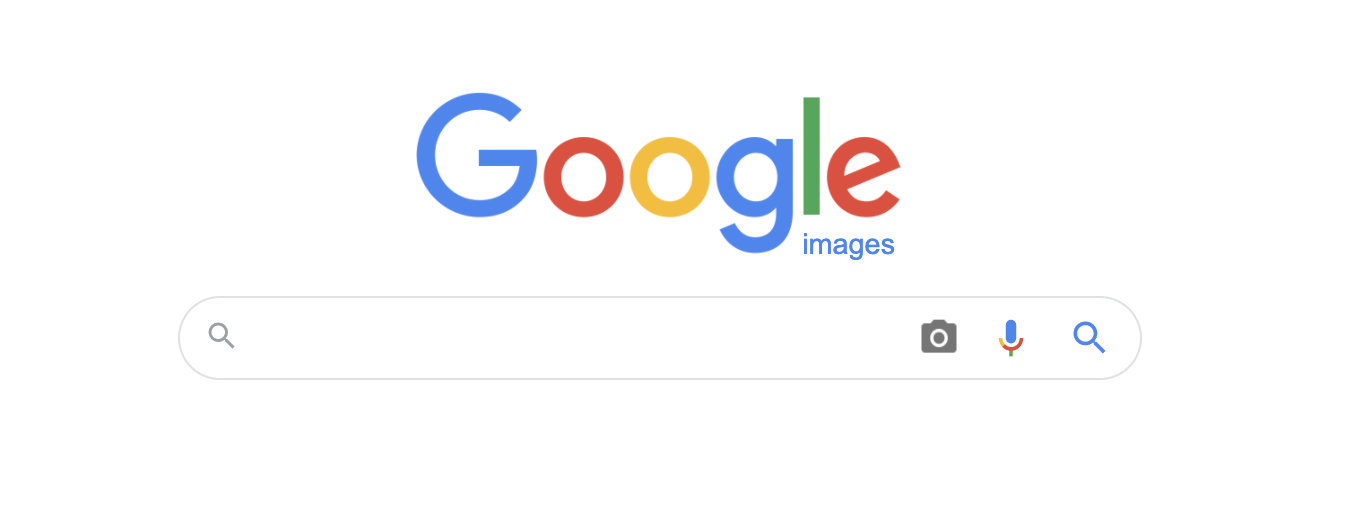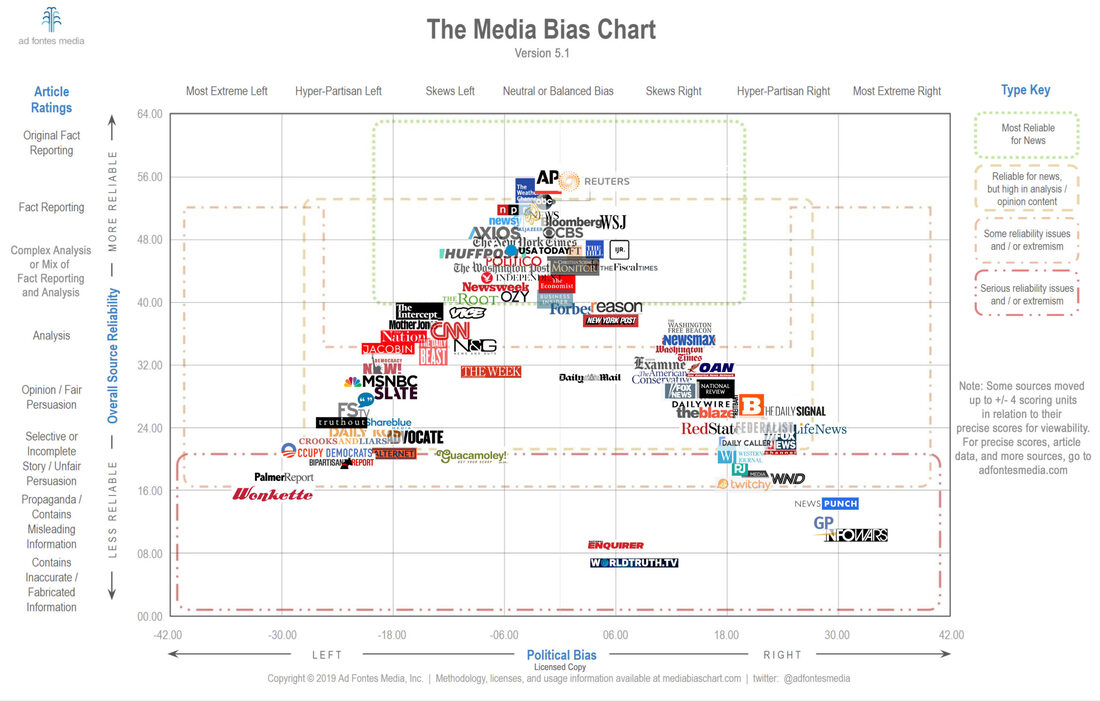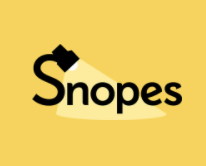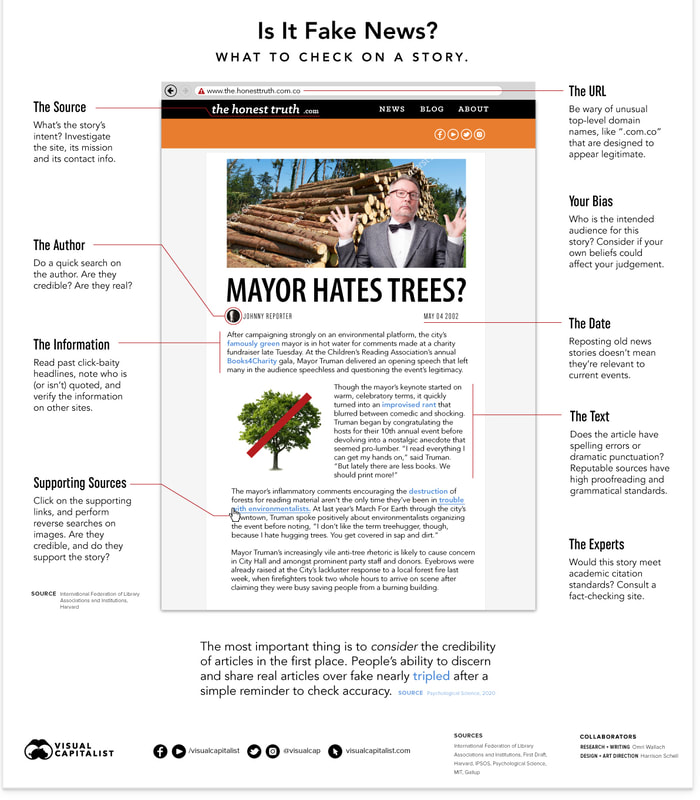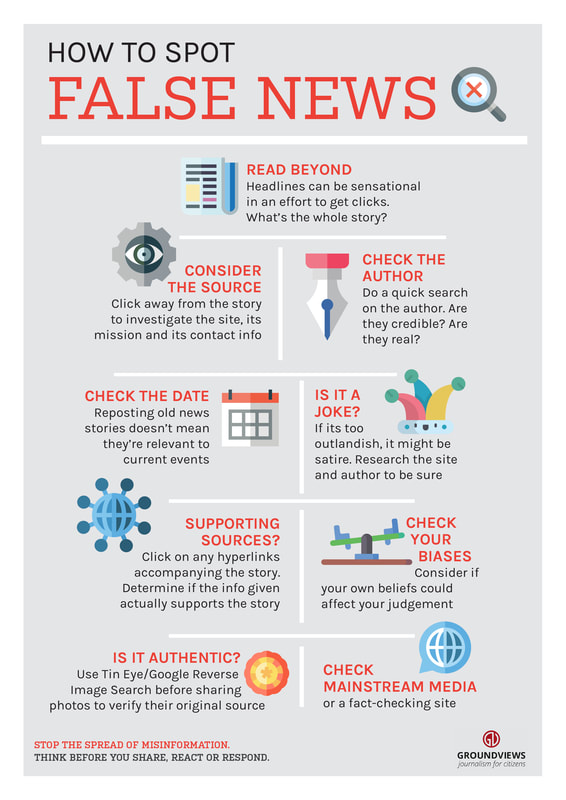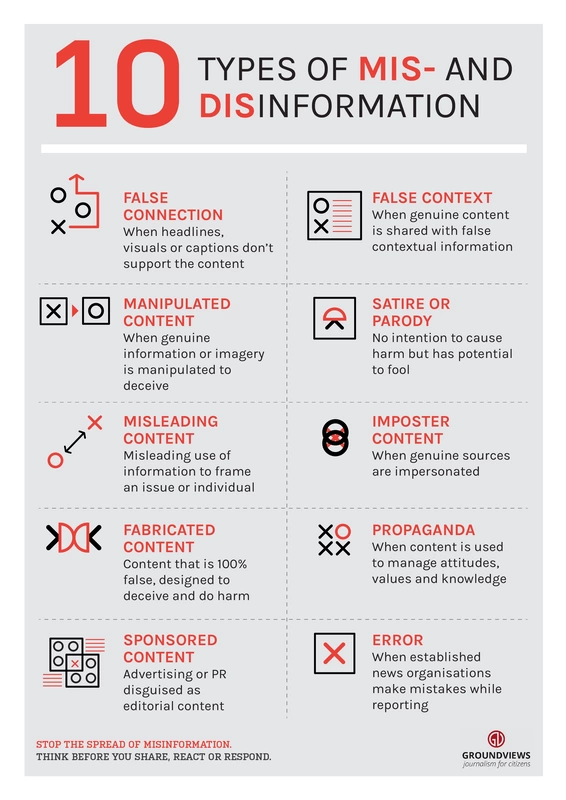CAN YOU SPOT THE FAKE? LET’S PLAY KAHOOT!
Image Checking Websites
Media Bias Chart
From: adfontesmedia.com
Click here for interactive chart
Click here for interactive chart
Fact Checking Websites
Steps for reading like a scientistSo how do we read this way? Based on our research, we have put together six steps to help you read in a critical way when engaging with scientific information.
- The first thing to do is simply be aware of how important information in the original source may be reinterpreted, modified and even ignored altogether depending on what a journalist understands or chooses to present. This is a bit like the game “telephone” where players pass a message to each other through whispering.
- In particular, you should watch out for big or surprising claims that may be exaggerated (such as giving people a “sixth sense”). Such extraordinary claims require extraordinary evidence.
- Check how precise and unambiguous the details presented in the article about the research are. Saying that an experiment has proven a particular fact is a lot stronger than saying it suggests that something might happen in the future.
- Look for a reference or a link to the original source in the report you’re reading, like the ones provided in this text. If there is one it’s more likely that the journalist has read the original research and understands what it does and doesn’t say.
- Try to check whether the arguments in the article come from the scientists who carried out the research or the journalist. This could mean looking for quotes or comparing with the original research paper, if you can do that.
- Look to see if other places are reporting the same stories. If only one news outlet is covering an “amazing breakthrough”, it might be time to apply a little more scepticism.
Source: https://theconversation.com/how-to-spot-bogus-science-stories-and-read-the-news-like-a-scientist-133828
Mis vs Dis vs Fake News vs Satire
|
Term
|
Definition
|
Example
|
|
"false information that is spread, regardless of whether there is intent to mislead"
|
|
“deliberately misleading or biased information; manipulated narrative or facts; propaganda.”
|
|
"false news stories, often of a sensational nature, created to be widely shared or distributed for the purpose of generating revenue, or promoting or discrediting a public figure, political movement, company, etc."
|
|
"a literary composition, in verse or prose, in which human folly and vice are held up to scorn, derision, or ridicule"
|

